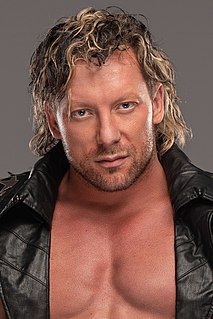A Quote by Dale Jamieson
It's obvious that there are vast variety of consequentialist views, depending on what we think goodness consists in, what our notion of consequence is, and what level (or levels) of human action we think the principle should be applied.
Related Quotes
The occupation is really terrible on a variety of levels. It's terrible on the "shooting people and torturing people in prison" level. But I think the thing that is very hard to convey is that it's also this bureaucratic grinding-down and daily humiliation that I think would probably be as horrible as the spectacular violence.
Ultimately, I don't know if love is an organizing principle we choose or if it's innate. I'm not sure the distinction matters to me much anymore; I just care about how we can reduce unnecessary suffering. I think that means learning to love in both the micro and the macro; engaging in ethical action at the level of intimacy and friendship, but also at the vocational level through our chosen work in the world, our right livelihood.
I think people cast their votes for a number of reasons. I think if you look at your polls, you'll probably find that many, many people think that our views are closer to what they believe the future of America should be. That our views are closer on economic issues. And a lot of those polls come down to demographics, to age, to how much money you are making.
Today we face many problems. Some are created essentially by ourselves based on divisions due to ideology, religion, race, economic status, or other factors. Therefore, the time has come for us to think on a deeper level, on the human level, and from that level we should appreciate and respect the sameness of others as human beings.
There's a stronger and more kind of controversial element of Plotinus' view of matter, which is that he actually identifies it with evil, or at least the principle of evil, and the reason for this is that he thinks that the the One, the highest principle, can also be thought of as the Good, and that's kind of surprising like, because he has this negative theology which doesn't allow us to say anything about the One. But he believes that it can be seen as the principle of goodness as well as unity, and that if you think about it, goodness and unity sort of go along with each other.

































